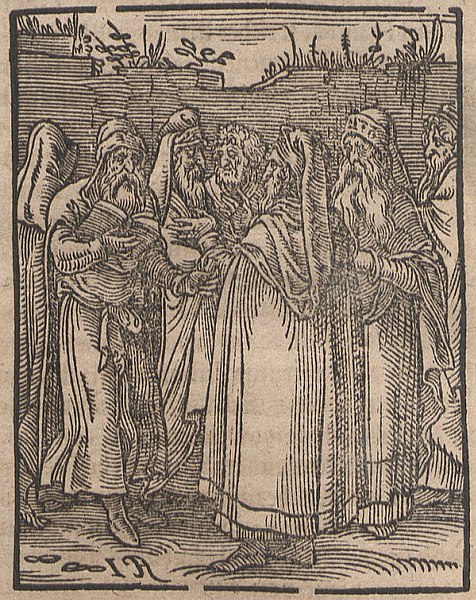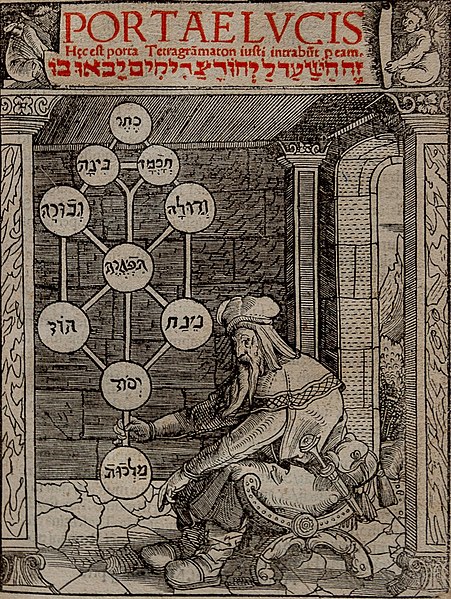Ein Sof, or Eyn Sof, in Kabbalah, is understood as God prior to any self-manifestation in the production of any spiritual realm, probably derived from Solomon ibn Gabirol's term, "the Endless One". Ein Sof may be translated as "unending", "(there is) no end", or infinity. It was first used by Azriel, who, sharing the Neoplatonic belief that God can have no desire, thought, word, or action, emphasized by it the negation of any attribute. Of the Ein Sof, nothing ("Ein") can be grasped ("Sof"-limitation). It is the origin of the Ohr Ein Sof, the "Infinite Light" of paradoxical divine self-knowledge, nullified within the Ein Sof prior to creation. In Lurianic Kabbalah, the first act of creation, the Tzimtzum self "withdrawal" of God to create an "empty space", takes place from there. In Hasidic Judaism, the Tzimtzum is only the illusionary concealment of the Ohr Ein Sof, giving rise to monistic panentheism. Consequently, Hasidism focuses on the Atzmus divine essence, rooted higher within the Godhead than the Ein Sof, which is limited to infinitude, and reflected in the essence (etzem) of the Torah and the soul.

The sefirot consist of lights invested in vessels, similar to water poured into a glass. While taking on the shape of the glass, the water is essentially unchanged.
Kabbalah or Qabalah is an esoteric method, discipline and school of thought in Jewish mysticism. A traditional Kabbalist is called a Mekubbal. The definition of Kabbalah varies according to the tradition and aims of those following it, from its origin in medieval Judaism to its later adaptations in Western esotericism. Jewish Kabbalah is a set of esoteric teachings meant to explain the relationship between the unchanging, eternal God—the mysterious Ein Sof —and the mortal, finite universe. It forms the foundation of mystical religious interpretations within Judaism.
Jewish Kabbalists portrayed in 1641; woodcut on paper. Saxon University Library, Dresden.
Kabbalistic prayer book from Italy, 1803. Jewish Museum of Switzerland, Basel.
Latin translation of Gikatilla's Shaarei Ora
Grave of Rabbi Akiva in Tiberias. He features in Hekhalot mystical literature, and as one of the four who entered the Pardes





